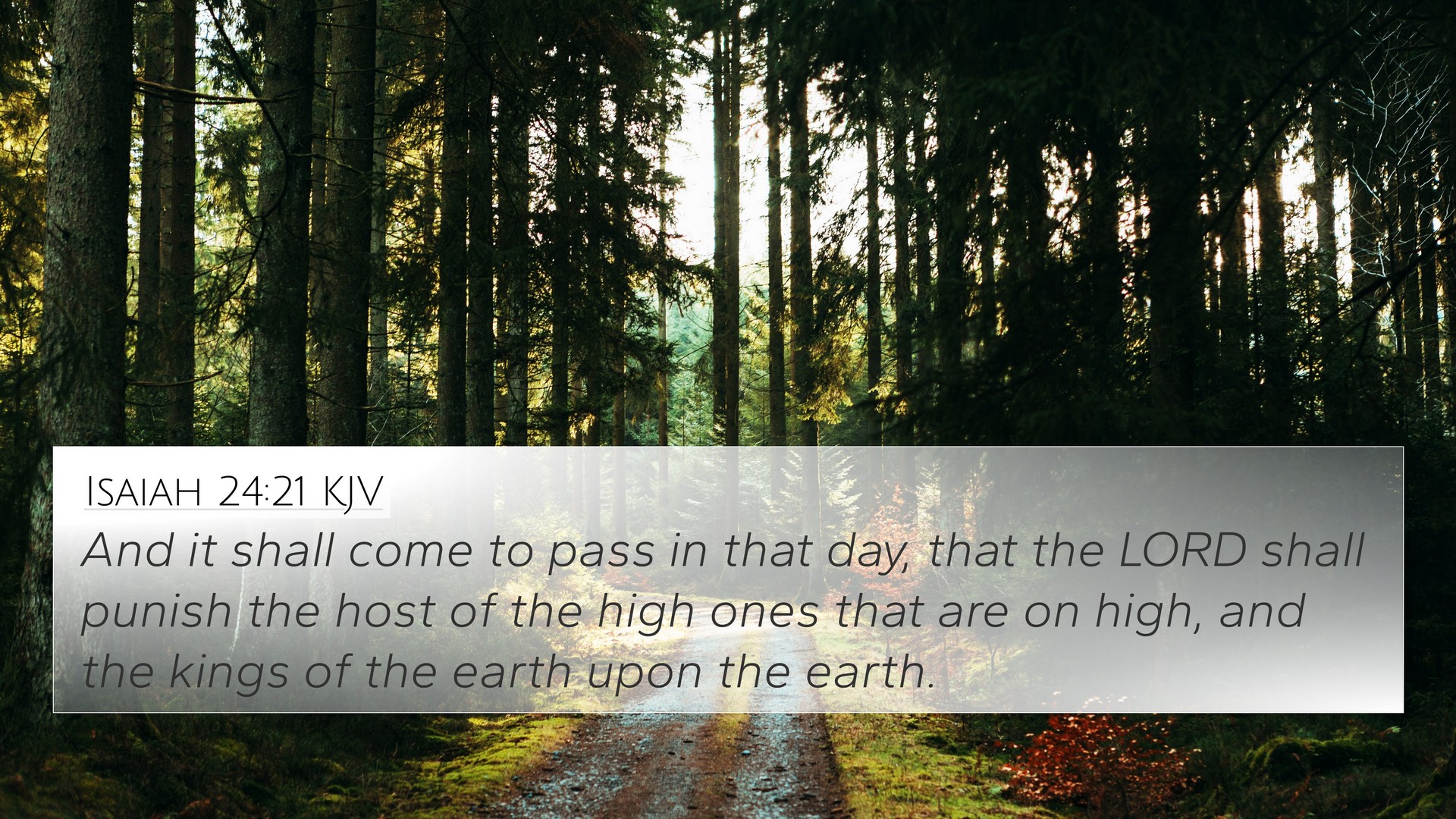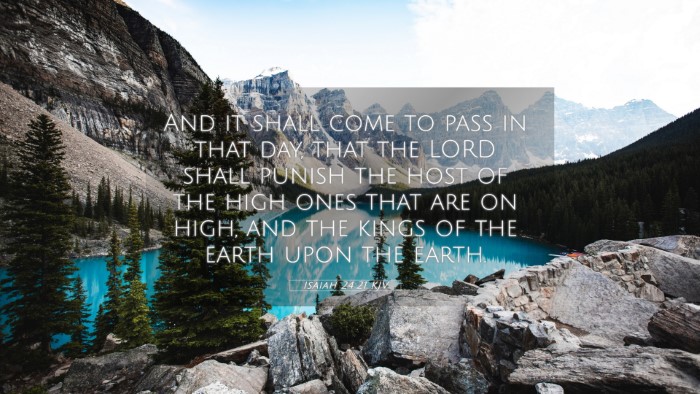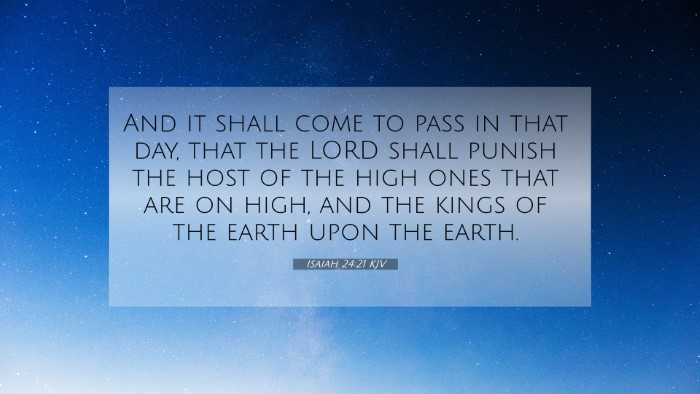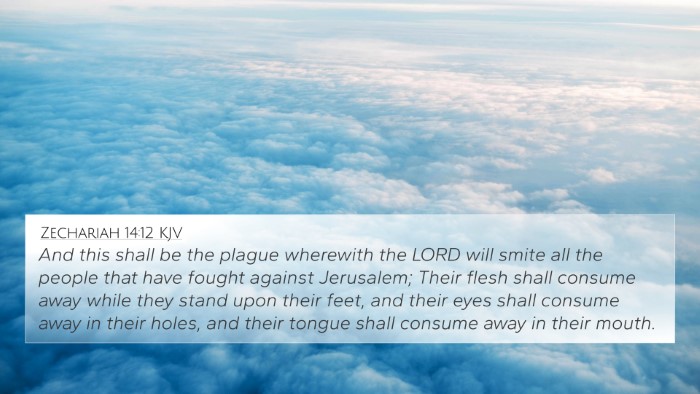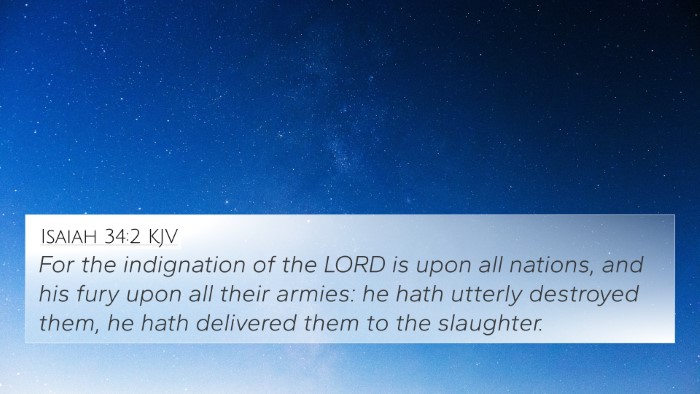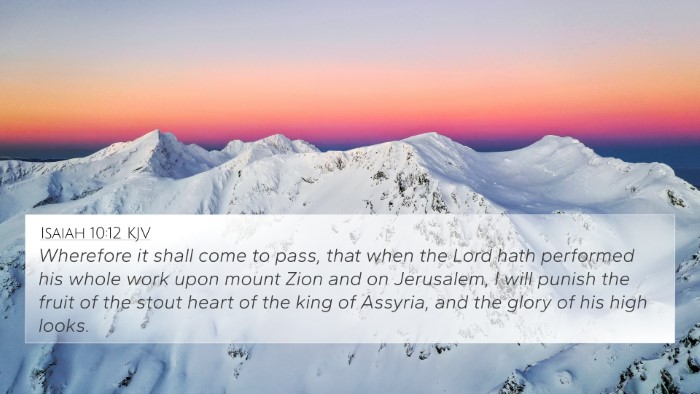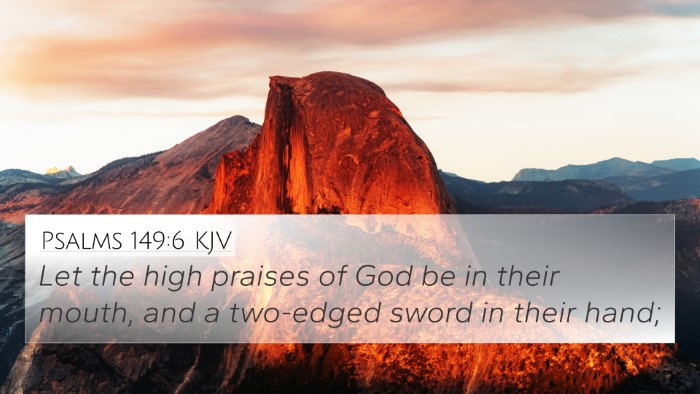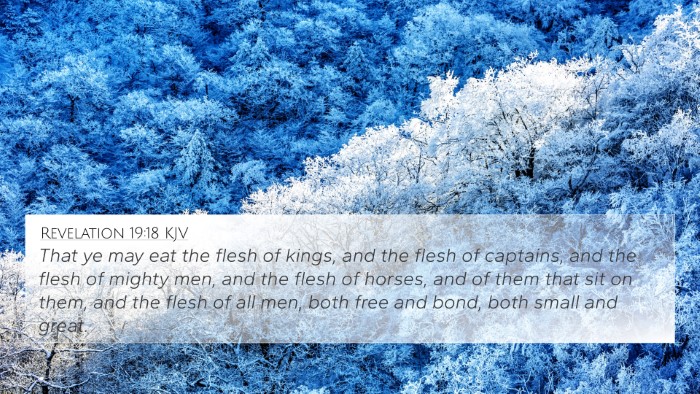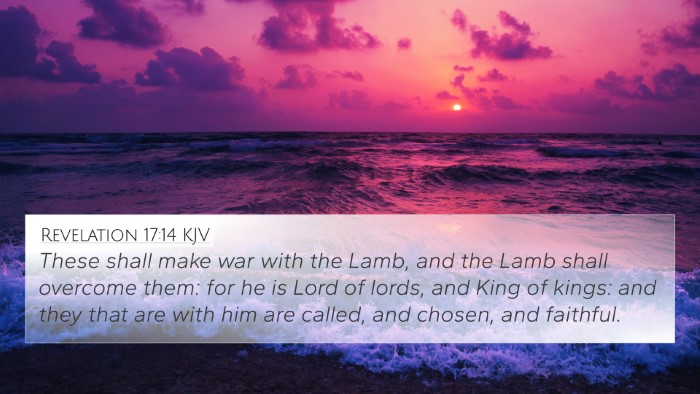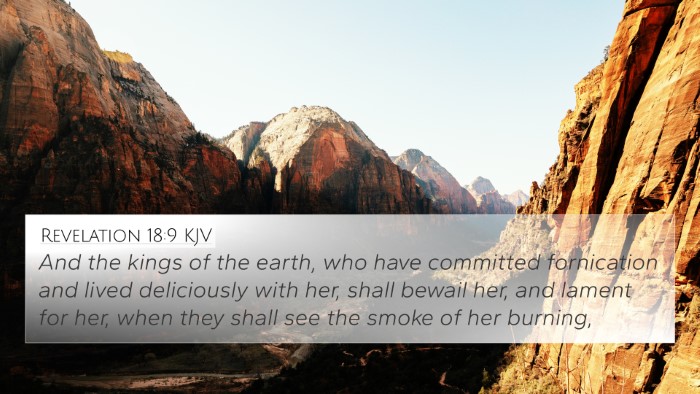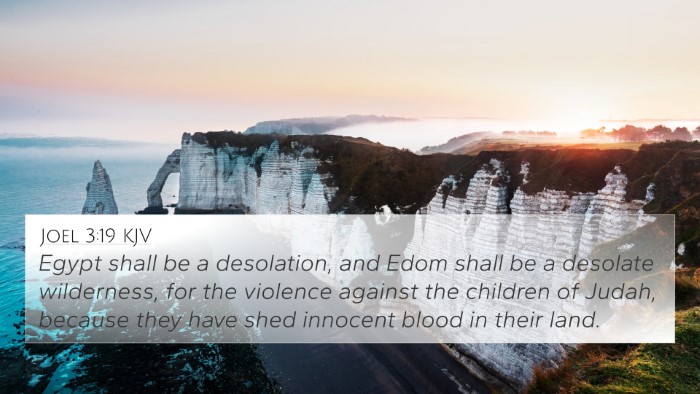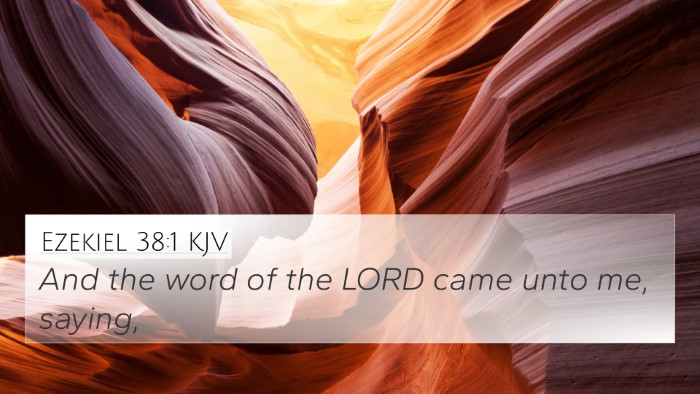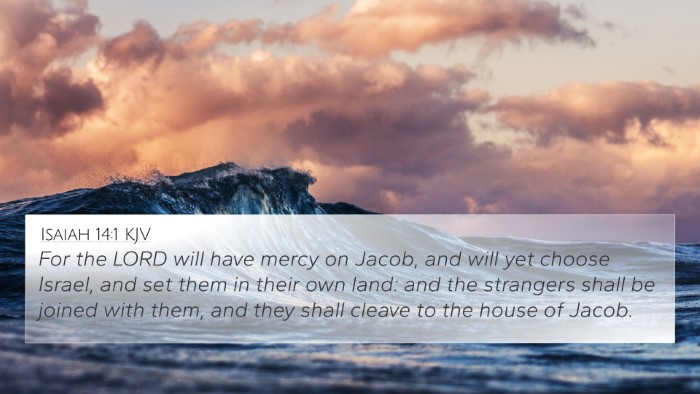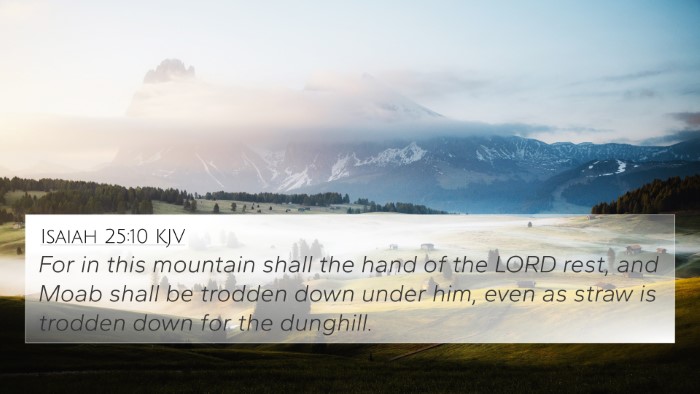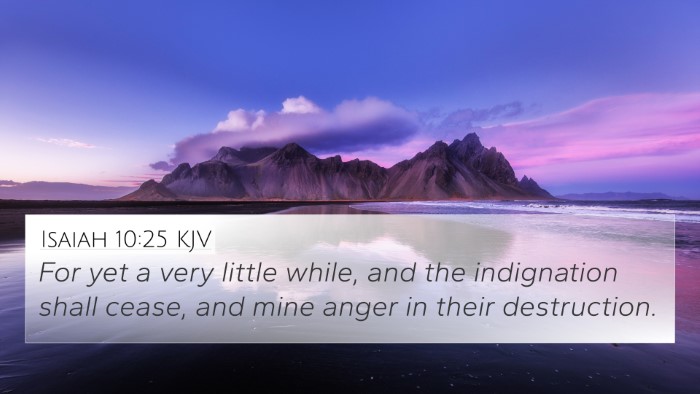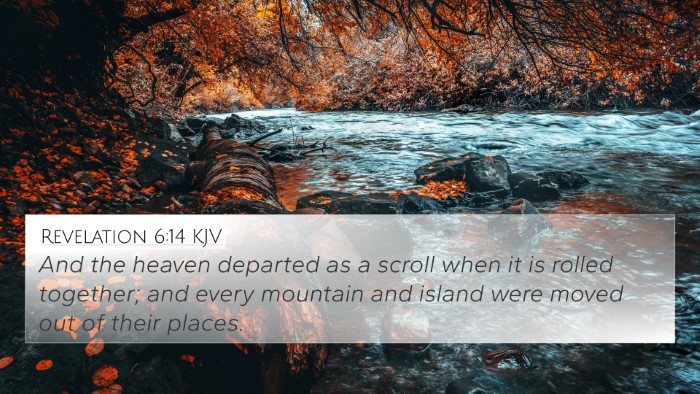Understanding Isaiah 24:21
The verse Isaiah 24:21 states: "And it shall come to pass in that day, that the Lord shall punish the host of the high ones that are on high, and the kings of the earth upon the earth." This verse speaks to the theme of divine judgment and retribution against both celestial and earthly powers. Below, we explore the meanings derived from public domain commentaries and cross-referencing biblical texts.
Verse Meaning and Interpretation
The prophet Isaiah foreshadows a significant day of reckoning where God will exercise His authority over all realms. Here are some insights from notable commentaries:
-
Matthew Henry:
Matthew Henry emphasizes the severity of God's judgment on those who oppose Him. He interprets 'the host of the high ones' as referring to angelic beings, while also alluding to the prideful rulers among men. This indication of dual judgment reinforces the notion that no power, heavenly or earthly, can escape divine accountability.
-
Albert Barnes:
Albert Barnes notes that this prophetic declaration embodies the certainty of God's vengeance. He highlights the correlation between the spiritual and temporal authorities, stating that both will face consequence for their rebellion against God. Barnes elaborates on the phrase 'kings of the earth,' suggesting it addresses all forms of earthly governance, indicating that none are above God's moral law.
-
Adam Clarke:
In his exegesis, Adam Clarke presents the verse as a vision of God's universal justice. He points out the impending chaos that will precede this day of judgment, marking a transition from human authority to divine sovereignty. Clarke’s interpretation draws attention to the ultimate triumph of God’s power over all creation.
Bible Cross-References
This verse is enriched by several cross-references throughout the Bible that further elucidate the themes of judgment and divine authority:
- Revelation 19:11-16: Describes the return of Christ as a judge and warrior against the nations.
- Isaiah 13:11: God's judgment against the world for its evil.
- Romans 13:1: The established authority is ordained by God, emphasizing the accountability of earthly rulers.
- Psalms 82:1: God stands in the congregation of the mighty; He judges among the gods.
- Isaiah 14:24-27: God's determination to fulfill His plans against nation rulers.
- 2 Peter 2:4: God's judgment upon angels who sinned alongside men in rebellion.
- Daniel 4:35: All the inhabitants of the earth are reputed as nothing; He does according to His will among the armies of heaven.
- Micah 4:3: Prophecy of peace and God's ultimate authority over nations.
- Jeremiah 46:25: The Lord will punish the multitude of Egypt, drawing a parallel to divine retribution.
- Ephesians 6:12: Our struggle is not against flesh and blood, but against powers and authorities in the heavenly realms.
Thematic Bible Verse Connections
Isaiah 24:21 plays a pivotal role in the thematic connection of biblical texts surrounding divine justice. The thematic interplay can be assessed through the following connections:
- Judgment: Many of the prophetic books foresee God’s final judgment on the wicked.
- Authority: Both the Old and New Testaments acknowledge God's sovereignty over earthly powers.
- Redemption: Themes of potential redemption following judgment weave through connected verses.
- Human Pride: A recurrent theme of human pride provoking divine judgment is evident across the scriptures.
Cross-Referencing Methods
For those studying Isaiah 24:21, several tools can enhance understanding through cross-referencing:
- Bible Concordance: This resource provides extensive listings of words and their occurrences across the Bible, making it easier to find related verses.
- Bible Cross-Reference Guide: Compiled references that connect related verses to assist in thematic studies.
- Bible Reference Resources: Books and online tools that offer cross-referencing insights for deeper study.
- Bible Chain References: Follow a chain of verses that explore similar themes or narratives throughout the Bible.
Conclusion
Isaiah 24:21 serves as a profound reminder of God's omnipotence and the inevitable nature of His judgment. By utilizing cross-references and understanding the connections between scripture passages, one can appreciate the rich tapestry of biblical meaning that weaves through the text. As we explore these connections, we are encouraged to deepen our understanding of God's word and its implications for both the ancient world and our lives today.
Further Study Suggestions
For those seeking to understand the complexities of biblical texts, here are additional study methods:
- Comparative Bible verse analysis: Compare different translations of the same verse for varying interpretations.
- Identifying connections between Old and New Testament: Explore how themes in the Old Testament find their fulfillment in the New Testament.
- Cross-referencing Psalms with New Testament teachings: Examine how the Psalms influence New Testament thought and doctrine.
